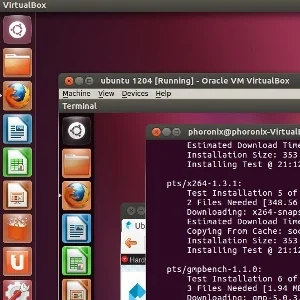VirtIO-FS Support Is In QEMU 5.0 For Better File/Folder Sharing Between Hosts And VMs

VirtIO-FS offers better performance than the likes of VirtIO-9P for sharing files/folders between the host system and guest virtual machines. With the forthcoming QEMU 5.0, VirtIO-FS is now supported.
A blog post this week by developer Stefan Hajnoczi outlines using VirtIO-FS in conjunction with QEMU 5.0 on supported kernel configurations.
"A key feature of virtio-fs is the ability to directly access the host page cache, eliminating the need to copy file contents into guest RAM. This so-called DAX support is not upstream yet. Live migration is not yet implemented. It is a little challenging to transfer all file system state to the destination host and seamlessly continue file system operation without remounting, but it should be doable. There is a Rust implementation of virtiofsd that is close to reaching maturity and will replace the C implementation," find out more on Stefan's blog.
6 Comments

